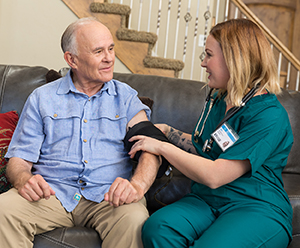Your loved one may need ongoing therapy or nursing care after a stroke. Talk with a social worker or case manager. They can help with planning for care. They can tell you about local sources of support.
Planning for home care
-
A nurse may come and check their blood pressure.
-
A physical therapist may help with exercises. The therapist will often show your loved one and their family members certain exercises that can be done without supervision.
-
Speech and occupational therapists can help the whole family communicate and handle tasks of daily living better.
Adult daycare
You may be afraid to leave your loved one alone. Adult daycare facilities can provide supervision if you need time away during the day. They also give your loved one a chance to be with other people.
Other resources
You can also check the internet for other resources. Try the following listings:
-
Churches and synagogues
-
Recreation centers
-
Adult daycare
-
Social services
-
Support groups
-
Online stroke support communities


